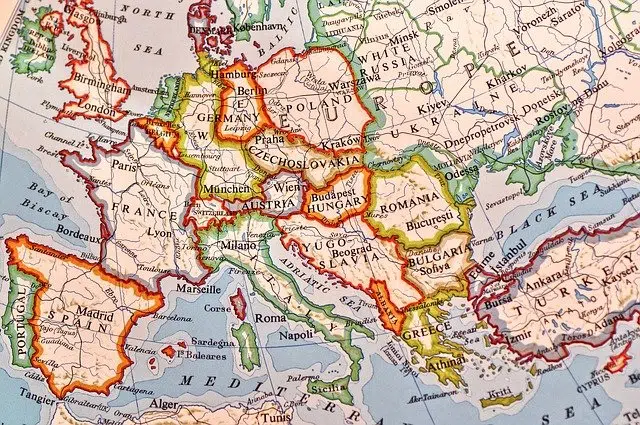
Eurocentrism considers Europe's culture, social organization and political system superior.
The notion of Eurocentrism refers to the tendency to take European traditions and values as universal standards . This propensity leads us to consider that Europe 's culture, social organization and political system are superior to those of the rest of the world.
Europe in the center
As the term itself indicates, Eurocentrism implies placing Europe at the center . Based on this preponderance, it is argued that Europe is destined to lead the world. In ancient times, in fact, Eurocentrism was reflected in campaigns of conquest.
Eurocentrism can be understood as a vision that develops from European experiences. In this framework, reference is made to a certain paradigm to justify the benefits achieved by Europeans through the exploitation of other peoples.
Eurocentrism is born from cultural hegemony . That is why it represents a distortion of the social and cultural reality of other regions and constitutes a prejudice to their detriment. Its validity is not only questionable, but a little attention is enough to categorically nullify it, because a single part of the world cannot be responsible for so many creations and advances throughout history.
If we look at other parts of the world, including certain European cities, we will notice similar trends: many countries unfairly centralize progress in certain regions, depriving others of their own merits and reducing them to mere peripheral landscapes.
The academy against Eurocentrism
It is important to highlight that, starting in the 20th century , Eurocentrism began to be put aside in the academic field. In an attempt to understand reality in all its diversity, many historians began to develop other types of studies, thus even demonstrating that certain advances considered European inventions had been implemented before on other continents.
Beyond this, Eurocentrism continues to appear in some theories and analyses. Eurocentric features can be found in discourses that place barbarism as an essential or typical characteristic of the East , to mention one case. According to the research work of Argentine philosopher, historian and academic Enrique Domingo Dussel Ambrosini , Europeans of the 18th century began to reflect history in a basic and linear way, tracing a vague trajectory that begins in Ancient Greece and ends in modern Europe, passing through the Roman Empire.

Many Chinese inventions were unfairly awarded to Europe.
As we mentioned above, despite the work of certain scholars to break away from such a reduced and limited representation of the history of our species, Eurocentrism continues to creep into different disciplines, such as sociology and historiography, even today. Speaking of the distortion that this vision generates in favor of Europe, there are modern studies according to which we know with certainty that some technological advances that until some time ago were attributed to Europeans had emerged much earlier in China. For example, we can mention gunpowder, the compass, the first versions of the printing press, iron casting and paper , all Chinese creations.
Historians have managed to demonstrate that even in the Modern Age Asia dominated the world from an economic point of view. By the 16th century, China, India and the Middle East had around 60 percent of the entire planet's production, a number that rose to 80 percent by the 19th century. Between both points, various industrial products were exported to European countries and, later, to colonial America. In fact, Chinese products were so important to Europe that they invested almost all the silver they mined in America to buy them.
